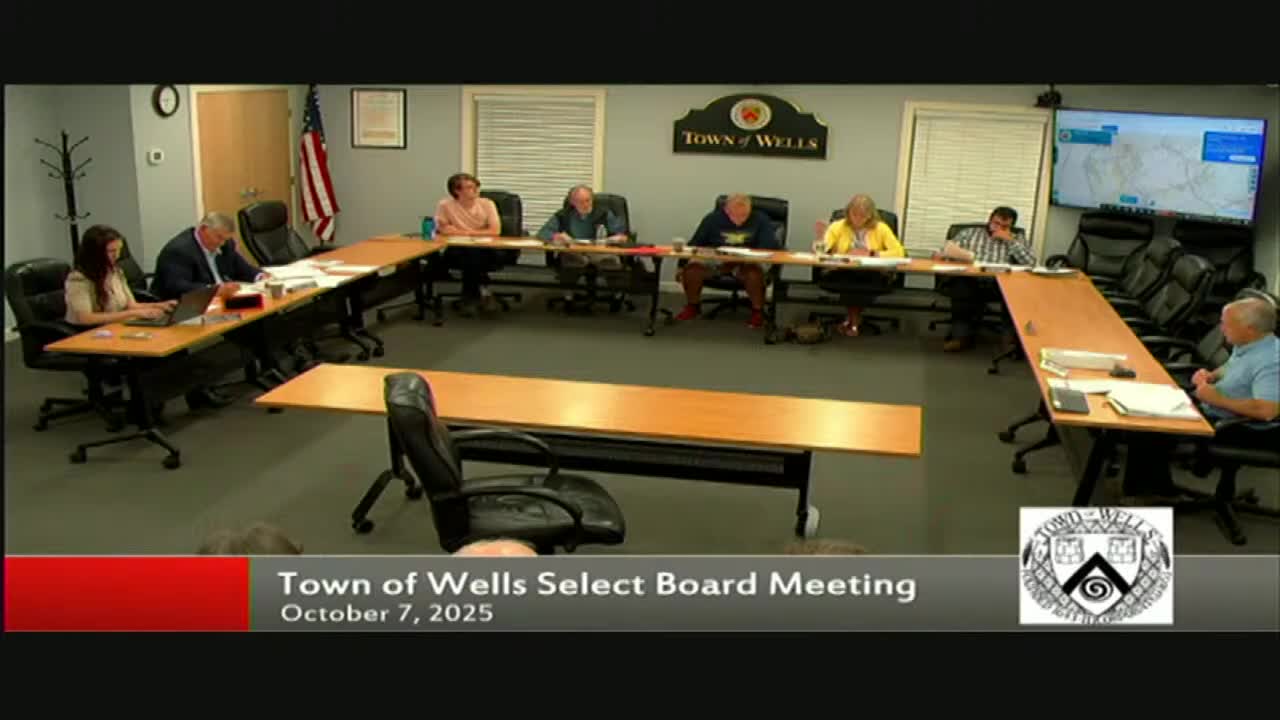Wells selectmen hold public hearings on Nov. 4 referendum articles including comprehensive plan, town-clerk change and ADU rules
Get AI-powered insights, summaries, and transcripts
Subscribe
Summary
The Wells Board of Selectmen opened public hearings on six Nov. 4 referendum articles, including a comprehensive plan update, a proposal to make the town clerk an appointed position and changes to ADU, affordable housing and sidewalk rules.
The Wells Board of Selectmen opened a municipal officers workshop and public hearings on six referendum items that will appear on the Nov. 4, 2025 ballot, including a comprehensive plan update, a measure to make the town clerk an appointed position, changes to accessory dwelling units and the town ffordable housing ordinance, expansion of a sidewalk overlay district and a boundary line agreement for a parcel abutting town conservation land.
Town Manager Mike Livingston provided background on the comprehensive plan and other warrant articles. "Article 2 on the warrant is the comprehensive plan update. Our current comprehensive plan dates to 02/2005," Livingston said, describing the 2019 ordinance that created a comprehensive plan update committee and the committee—laborations through 2025. He said the plan has been approved by the state as meeting its criteria and was placed on the ballot.
The questions matter because they will change local rules and implementation. The clerk article (Article 3) would let voters decide whether the town clerk is an appointed, rather than elected, office; Livingston summarized the recent history: the longtime elected clerk Brenda Layman retired in March 2024; the board appointed Marybeth Pordon to fill the vacancy; and earlier ballot efforts in 2023 failed to meet turnout thresholds. "We're bringing it to the voters again November 4," Livingston said, noting the turnout threshold historically required approximately 2,100–2,200 voters.
On Article 4, Livingston said changes to the accessory dwelling unit (ADU) ordinance were intended to conform town rules with a state statute. Highlights he listed include allowing ADUs on nonconforming lots, permitting ADUs in any residential zone rather than a subset, allowing detached ADUs where previously ADUs had to be attached, permitting owner-occupancy of either unit, raising the maximum ADU size from 600 to 800 square feet and imposing a six-month minimum lease period on ADU occupancy.
The board summarized proposed changes to the affordable housing ordinance (Article 5): expanding the zones where the ordinance applies (from RA only to RA, RC and GB), increasing an existing density bonus to 2.5 and reducing some buffering provisions that state law does not permit towns to add. Article 6 would expand the town—ootway overlay to match the Route 1 quarter study, covering all of Route 1 and adding Chapel Road and College Drive; the proposal would require sidewalks for new commercial or new dwelling development in the overlay and change the construction standard from pavers to stamped concrete.
Article 7 asks voters to approve a boundary line agreement between the town and an abutting property owner on land adjacent to conservation holdings the town bought in 2013. Livingston said two surveyors reviewed old deed lines that date to the early 1800s and recommended a boundary‑line agreement to create straighter, mutually acceptable lines rather than rely on uncertain historic markers.
No formal votes were taken on those articles during the hearing; the public hearing format gave residents an opportunity to ask questions and for staff to summarize the changes and the effects voters should expect if the measures pass.
The board scheduled or noted the items for inclusion on the Nov. 4 ballot and moved on after public input was taken; additional materials and the full warrant will guide final ballot language and implementation if voters approve the measures.
